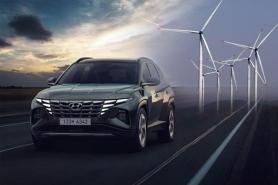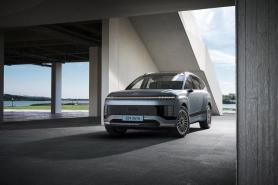
SEOUL -- South Korea's domestic sales of eco-friendly vehicles including electric vehicles, hybrid vehicles, and hydrogen fuel cell vehicles, stood at 558,112 units in 2023, up 24.3 percent year-on-year. It was the first time the country saw annual sales of environmentally-friendly vehicles exceed 500,000 units.
South Korea's transport ministry data shows that there are 25.94 million registered vehicles as of December 2023, 2.12 million vehicles are eco-friendly cars -- hybrid (1.54 million), EV (544,000), and hydrogen (34,000), accounting for 8.1 percent of the total registered vehicles. The country saw the accumulated number of registered fossil-fuel vehicles drop for the first time in 2023.
To stimulate the adoption of eco-friendly vehicles, the South Korean government, along with local city and provincial governments, offers substantial subsidies and tax benefits. For instance, a driver in Seoul purchasing a Hyundai Ioniq 5 all-wheel-drive long-range model can receive a total government support amount of 9.4 million won ($7,050), coupled with discounts on various vehicle-related taxes and expressway tolls.
While electric and hybrid vehicle adoption is on the rise, the growth of EV charging infrastructure remains slower. As of 2022, South Korea had 194,081 chargers, equating to one charger for every two EVs. Only 20,737 of these chargers support rapid charging, capable of fully charging a vehicle within a few hours.
Transport ministry data released on February 1 revealed that a total of 558,112 eco-friendly vehicles were sold in 2023, representing a 24.3 percent increase compared to the previous year. The number of registered clean energy vehicles has been steadily increasing by about 100,000 units annually since 2021.
Additionally, the data highlighted South Korean consumers' preference for domestically-made hybrid vehicles, with the market share increasing to 71.7 percent in 2023 from 61.2 percent in 2021. The Korea Automobile Manufacturers Association attributed the popularity of hybrid vehicles to increased public recognition of eco-friendly options and the convenience of charging batteries while driving. However, the market share of foreign EVs increased to 29.2 percent from 25.8 percent in 2021, with some global automakers aggressively targeting South Korean consumers through significant discounts.
Copyright ⓒ Aju Press All rights reserved.




